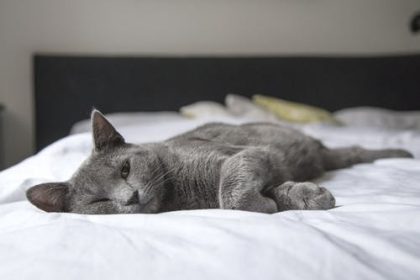Cats are prone to upper respiratory infections or “colds.” If you’ve ever had a cold, you realize how awful and distressing it can make you feel. It’s the same with your feline companions, too. Cats who sneeze or have drippy noses are more likely to struggle with a cold.
Important Things to Do When Your Cat Is Sick With a Cold
A “cold” in a cat suggests an upper respiratory tract disease. Your cat might become fatigued and drop its appetite if infected with a virus. Since the virus spreads through the air, even indoor cats are vulnerable to grabbing a cold despite vaccination. Here are some easy things you can do in your house to help your feline buddy feel better.
Feed Them Strong-Smelling Foods
To be able to eat, a cat must have the ability to smell. Cats with a cold might benefit from being fed more strong-smelling foods than usual to help them stay nourished. Strong-flavored canned fish and other foods are typically the most effective options when your cat acquires a cold.
When your cat is sick with a cold, ensure they get lots of fluids. Ensure that they have access to safe drinking water at all times. You might likewise offer them some chicken broth to drink. Heat the broth for 30 seconds to a minute to boost the aroma. A vet nutritionist may give helpful insight into your pet’s nutrition information, which may be valuable if you’re unclear about what to feed them.
Boost Their Immune System
Supplementing your cat’s vitamin C consumption can additionally assist them in fighting an upper respiratory ailment. Cats can endure doses ranging from 250 to 500 milligrams daily. Give your cat Vitamin C daily for the following four days to help combat the disease. Your cat’s loose feces may be caused by vitamin C. Vitamin C can create loose feces in cats, so reduce the dosage you’re providing them if this occurs.
However, it would be best to speak with a veterinarian internist that offers veterinary internal medicine conditions services before buying any vitamin supplement for your cat to confirm that you provide the appropriate dosage to your pet.
Give Them Plenty of Water
Even if your cat has an upper respiratory disease, you have to keep giving water to keep them hydrated. Many animals have a strong choice for drinking water that is moving, and if you’ve observed that your pet isn’t drinking as much as it needs to be, purchasing a little electric water fountain could be an ideal option.
On the other hand, colds in cats are innocuous and generally go away on their own after a week or two. As a precaution, keep an eye on your kitty’s health, and if it doesn’t improve by the fourth day, call an emergency veterinarian providing after-hours emergencies service. Pneumonia is a potentially severe problem that can occur from a relentless cold that does not obtain the necessary treatment.
Bottom Line
Older cats, kittens, and cats with underlying problems that make them a lot more susceptible to the effects of a cold should be offered added attention. Cats that are nursing or have not been vaccinated are especially vulnerable. Make an appointment immediately if your cat fits into one of these categories. Additionally, ensure they obtain follow-up appointments to keep their health balanced.





